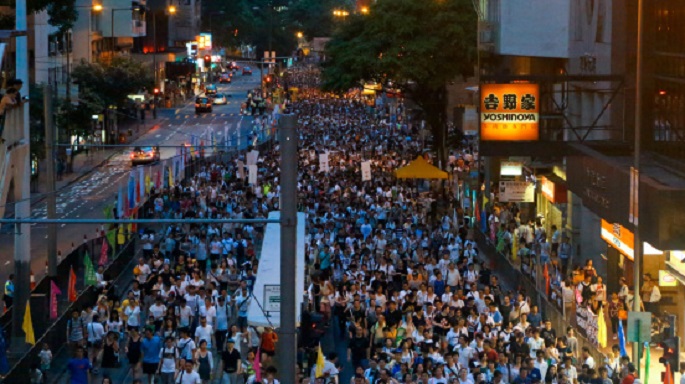Cases of death penalty and human right violations continue to abound in China, according to the Amnesty International Report 2015/16 – The State of the World’s Human Rights.
Death penalty continues in many countries in Asia-Pacific, including in China where it happens “extensively.”
The London-based human rights group Amnesty International documented the state of human rights during 2015 in different countries and published its findings through the said report.
Headlines of various media outlets announce China as the “top executioner” in the world.
“… but it doesn't want you to know that,” added a CNN headline.
China treats statistics relating to death penalty as a state secret, according to AI.
The organization said in its 2014 report that it “stopped publishing figures on China in 2009 and instead challenged the Chinese government to release the numbers themselves . . . to prove their claims that they are achieving their goal of reducing the application of the death penalty.”
According to AI’s website, China “executes more people than the rest of the world combined.”
In 2014, AI named--in this order--China, Iran, Saudi Arabia, Iraq and the USA as the top five executioners.
The 2015 report also said that “an appalling internal human rights situation prevailed” in the country.
The Chinese government “stepped up” its “controls over the Internet, mass media and academia” by enforcing laws and regulations “under the pretext of enhancing national security.”
Defenders of human rights in the country--activists, journalists, lawyers--all “faced increased intimidation, harassment, arbitrary arrest and violence.”
They included Wang Yu, the outspoken commercial lawyer-turned-human rights advocate, the award-winning investigative journalist Gao Yu, and the supporters (more than 100 people) of the Hong Kong protests in 2014.
Wang and more than 100 fellow lawyers were detained in July 2015, according to The Washington Post.
She was the one who defended the women’s rights activists Wei Tingting, Wang Man, Wu Rongrong, Li Tingting and Zheng Churan, dubbed by the media as the “Five Feminists.”
“Instead of governments recognizing the crucial role these people play in society, many governments have deliberately set out to strangle criticism in their country,” said Salil Shetty, Indian human rights activist and AI’s Secretary-General.
British lawyer Peter Benenson (1921-2005) founded the non-governmental organization Amnesty International in July 1961 to “fight abuses of human rights worldwide, bring torturers to justice, change oppressive laws and free people jailed just for voicing their opinion,” according to its website.
The Amnesty, “a global movement of more than 7 million people,” campaigns “for a world where human rights are enjoyed by all.”



























